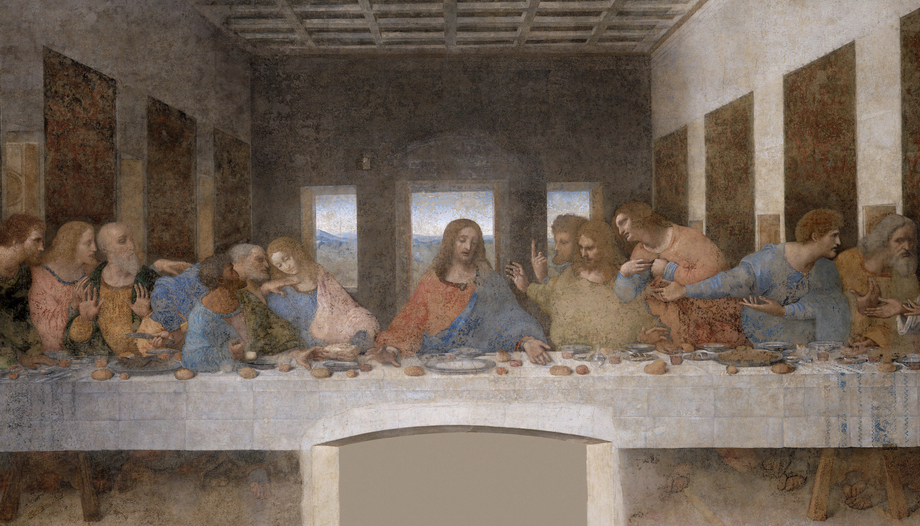The parody of the last supper that Paris 2024 offered to millions of spectators around the world gives us the opportunity to explain the greatest revolution in history, which was not the French revolution, but precisely that of that Jew and his 12 friends.
At the opening ceremony of the Olympic Gamesthe cradle of chauvinism offered us an exhibition of its patriotic pride. Nothing to object to because, after all, organizing the Olympics is, above all, a marketing operation to demonstrate power for political and economic purposes.
Proud of their bloody revolution, Marie Antoinette beheaded included, they showed the world their best triumphs and values, including that of unlimited freedom of expression including the right to show those "scenes of mockery and derision of Christianity" that forced the French bishops to ask for explanations from the organization.
Going back in history to illuminate this event, the first image that came to my mind is another moment of mockery and derision experienced by Jesus himself. It is when, after being crucified, he prayed: "Father, forgive them, for they know not what they do". Did the authors and performers of the show really know how painful this kind of mockery can be for a believer? Did they know exactly what the scene meant and who they were parodying?
In Andalusia, where I live, a region where the deep-rooted popular religiosity is being a tremendous brake on secularization, there are few people under 30 who would know St. Peter from St. Paul, and many thousands who believe that Mary Magdalene was Jesus' partner and that the Holy Trinity is a Marian invocation. Seriously, I have proof. Religious ignorance has reached unsuspected limits in recent years.
Nor do I suck my finger to believe that no one knew that the scene was intended to provoke and scandalize, an essence of drag aesthetics, but didn't the Roman soldiers who were crucifying Christ also know that they were committing an injustice? And yet Jesus interceded for them before the Father.
There are many factors that lead men to commit evil and, many times, those who do it are nothing more than pawns in the service of the prefect, the king, the republic or the pressure group of the day, which the thing has been changing names. First of all, therefore, to the authors and interpreters, my prayer because "they do not know what they are doing".
The second Gospel moment that challenges me is the one in which the Master said: "You have heard that it was said: 'An eye for an eye, a tooth for a tooth'. But I say to you, do not stand up to the one who wrongs you. On the contrary, if one slaps you on the right cheek, turn to him the other cheek". The slap on the right cheek is that which is given with the back of the hand as a sign of contempt, so as not to stain even the palm with the face of the other.
The first response that occurs to all of us when we are the object of an injustice, of a mockery, is to return not only an eye for an eye (which in itself was a moral advance in its time), but the same damage multiplied by at least two or three. And this is where the greatest revolution in history makes its appearance, the one introduced by Christ betting on love for the enemy, turning the other cheek, returning good for evil.
In this regard, Benedict XVI reflected: "Love of enemies is at the heart of the 'Christian revolution', a revolution that is not based on strategies of economic, political or media power. It is the revolution of love, a love that ultimately does not rely on human resources, but is a gift of God that is obtained by trusting solely and unreservedly in his merciful goodness. This is the novelty of the Gospel, which changes the world without making noise. This is the heroism of the "little ones," who believe in God's love and spread it even at the cost of their lives."
May the Church be ever smaller, more distant from power, less offended by itself and more offended by the affronts to the dignity of its brothers and sisters; a community of little ones ready to evangelize without limits, to love without fear of affronts, to be witnesses even to martyrdom, like those apostles now parodied.
And, to conclude my evangelical reflection on the Olympic controversy, another phrase from the Passion of Jesus. One that sums up what the Gallic bishops wanted to say and to which the majority of Christians and people of good will who believe in truth, democracy, respect, dialogue and tolerance subscribe. It is the one pronounced by Christ in the house of Annas. While giving his testimony and after receiving a slap from which he could not even protect himself because he was tied up, he said to his aggressor (and repeats today in the city of the Bastille): "If I have failed to speak, show what I have failed to do; but if I have spoken as I should, why do you strike me?
Journalist. Graduate in Communication Sciences and Bachelor in Religious Sciences. He works in the Diocesan Delegation of Media in Malaga. His numerous "threads" on Twitter about faith and daily life have a great popularity.








